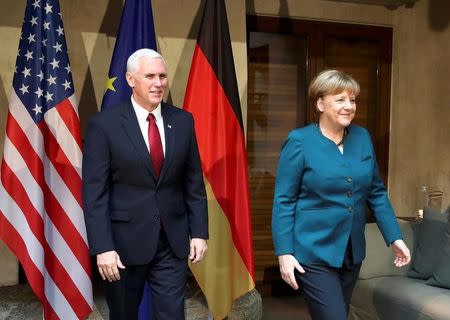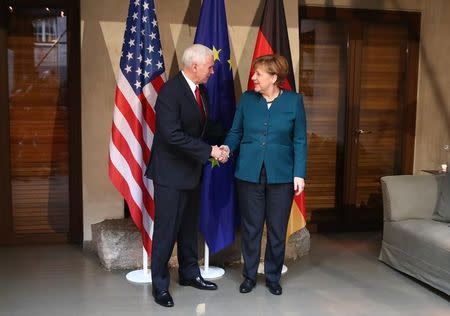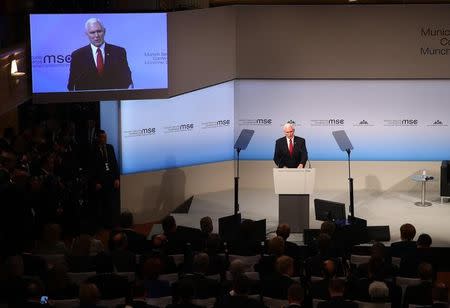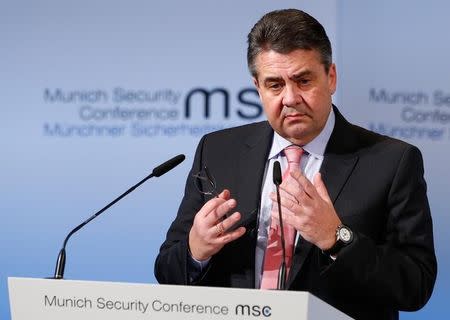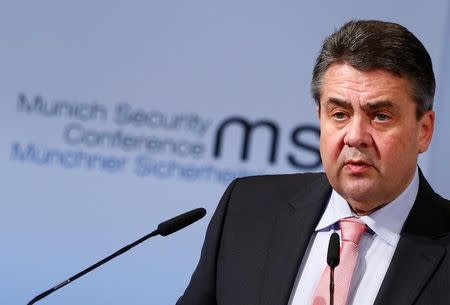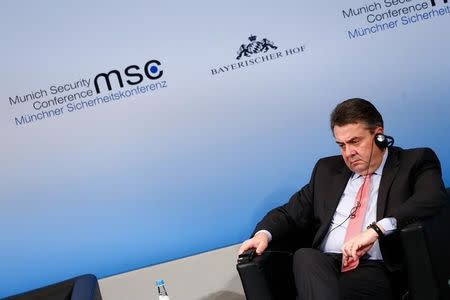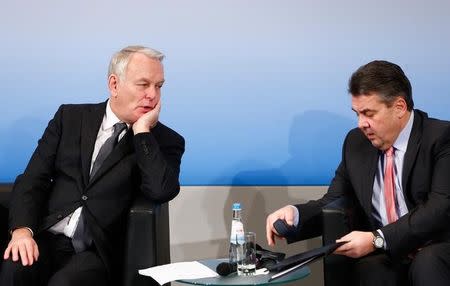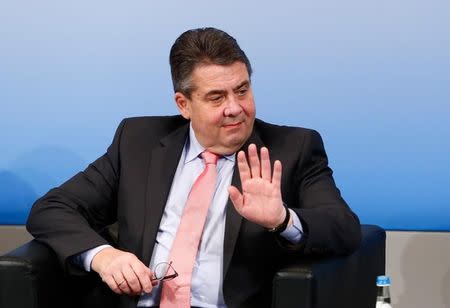U.S. steps up pressure on Europe to boost defence spending
MUNICH (Reuters) - The United States on Saturday redoubled its longstanding demand that Germany and other European countries spend more on defence, saying their failure to meet NATO's 2 percent military spending target was eroding the foundation of the Atlantic alliance. "When even one ally fails to do their part, it undermines all of our ability to come to each other’s aid," U.S. Vice President Mike Pence told the Munich Security Conference, even as he assured NATO allies of Washington's unwavering support. German Foreign Minister Sigmar Gabriel said Germany remained committed to reaching the NATO target, but that it would be hard to boost its defence budget quickly by the 25 billion euros ($26.5 billion) that would be required. Germany now spends about 1.2 percent of gross domestic product on the military. He called for a broader approach that also addressed security risks such as climate change, and said Germany should get credit for the 30 to 40 billion euros it is spending to integrate over a million refugees, many of whom were displaced as a result of failed military interventions of the past. "We are taking these people in and integrating them and preventing them going to other parts of the world as 'freedom fighters'," Gabriel said. NATO Secretary General Jens Stoltenberg told the conference that Europe needed to better integrate its fragmented defence industry, but that this remained a political challenge for countries seeking to protect their own industries and jobs. EU Industry Commissioner Elzbieta Bienkowska told a closed-door session that "we must progressively build a defence union in Europe”, according to one of those present. EU militaries operate 19 types of armoured infantry fighting vehicles, compared with one in the United States, while 25 billion euros of defence spending are wasted every year, according to European Commission data. Gabriel also questioned the wisdom of pegging the NATO military spending target to gross domestic product, noting that Greece met the goal, but was having trouble paying its pensions. French Foreign Minister Jean-Marc Ayrault told the conference that it was important to focus increased spending on equipment needs, rather than military pensions. "The question is not funding NATO or changing budgets, but how Europe can ... improve its deployability without creating a European army," he said. ($1 = 0.9424 euros) (Reporting by Andrea Shalal; Editing by Kevin Liffey)

